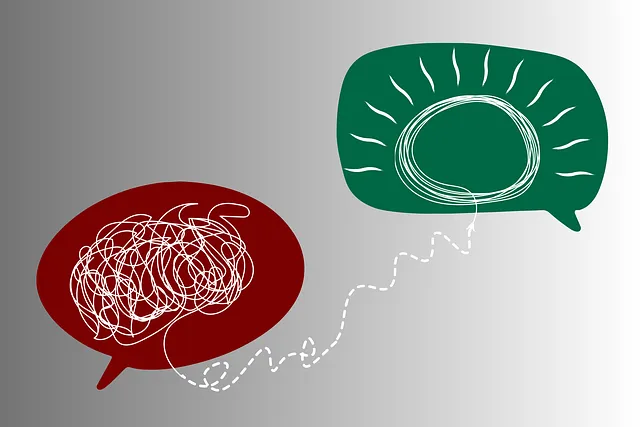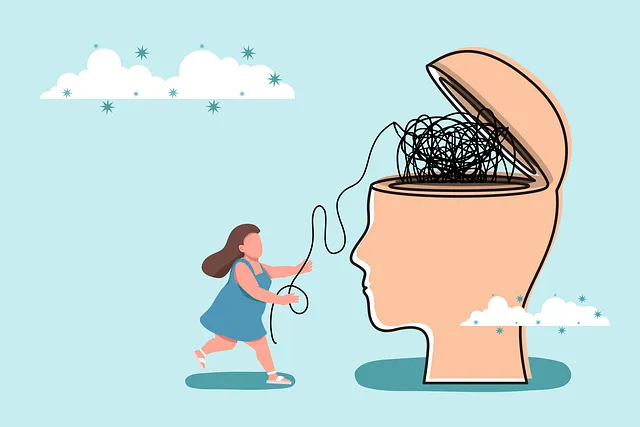The media's portrayal of mental health significantly shapes public perceptions, either reducing stigma or perpetuating it. In Northglenn, where access to mental health services like those at Kaiser might be a concern, positive media representation and diverse storytelling are crucial. Training healthcare providers in cultural competency ensures tailored care for diverse populations, enhancing access to quality services. Northglenn's collaboration with Kaiser to improve mental health services reflects a growing commitment to building a healthier community. Encouraging accurate, diverse portrayals in media challenges negative mental illness representations, while employing individuals with lived experience and effective risk assessment strategies enhance patient outcomes.
In today’s media landscape, accurate representation of mental illness is crucial for fostering understanding and reducing stigma. This article explores how media portrayal significantly impacts mental health awareness, with a specific focus on Northglenn and whether Kaiser offers mental health services.
We delve into the current state of these communities’ mental health support systems, identifying gaps in care. Furthermore, we propose solutions centered around enhancing media representation and improving access to mental health services for those in need.
- Understanding the Impact of Media Portrayal on Mental Health Awareness
- The Current State of Mental Health Services in Northglenn and Kaiser
- Proposed Solutions: Enhancing Media Representation and Access to Care
Understanding the Impact of Media Portrayal on Mental Health Awareness

The media plays a powerful role in shaping societal perceptions and beliefs about mental health. Positive and accurate representation can significantly impact public understanding and reduce stigma, encouraging those struggling to seek help. Conversely, negative or stereotypical portrayals can perpetuate misconceptions, leading to further isolation for individuals living with mental illness. This is especially relevant when considering communities like Northglenn where access to Kaiser’s mental health services may be a concern. By presenting diverse narratives and promoting empathy, media has the potential to foster a more supportive environment.
Promoting mental health awareness through media requires a shift towards realistic and nuanced storytelling. Encouraging self-care routine development and confidence boosting initiatives within these platforms can empower individuals to take charge of their well-being. Moreover, healthcare provider cultural competency training is crucial to ensure professionals are equipped to address the unique needs of diverse populations, thereby improving access to quality care, such as that offered by Kaiser in Northglenn.
The Current State of Mental Health Services in Northglenn and Kaiser

In Northglenn and within Kaiser healthcare network, mental health services play a pivotal role in addressing the community’s psychological well-being. Currently, these areas offer a range of support systems aimed at improving access to care and promoting emotional regulation among residents. The availability of professional counseling, therapy sessions, and support groups is a testament to the increasing recognition of mental health as an integral part of overall wellness.
The focus on positive thinking and emotional well-being promotion techniques has been a game-changer in recent years. These approaches encourage individuals to take proactive steps towards managing their mental health. Northglenn and Kaiser’s collaborative efforts to enhance these services reflect a growing commitment to fostering a healthier, more resilient community where residents can openly discuss and seek help for their emotional challenges.
Proposed Solutions: Enhancing Media Representation and Access to Care

To challenge negative mental illness representation in media, several proposed solutions emphasize enhancing media portrayal and improving access to care. One key strategy involves encouraging more diverse and accurate portrayals of mental health in films, television shows, and news media. This includes showcasing a broader range of conditions, such as bipolar disorder, schizophrenia, and anxiety disorders, to dispel misconceptions and foster empathy among the general public. Northglenn residents interested in exploring mental health resources can turn to Kaiser Permanente, which offers comprehensive mental health services tailored to individual needs.
Additionally, media platforms should prioritize employing individuals with lived experience of mental illness in creative roles, allowing for authentic representation. This approach ensures that stories are told from a perspective that resonates with audiences and promotes understanding. Alongside these efforts, implementing effective risk assessment strategies for mental health professionals is crucial. These assessments help identify potential risks and ensure the safety of both clients and practitioners. Further, incorporating empathy-building strategies in therapy sessions can enhance patient outcomes by fostering deeper connections between patients and healthcare providers.
Media representation plays a pivotal role in shaping public perception of mental illness. By accurately and sensitively depicting individuals with mental health conditions, we can foster greater understanding and reduce stigma. In light of the current state of mental health services in Northglenn and Kaiser, it’s clear that enhancing media representation is not just a challenge but a necessity. Proposed solutions, including improved access to care and more inclusive storytelling, hold the potential to revolutionize how mental illness is portrayed and perceived, ultimately benefiting those seeking support in our communities.



